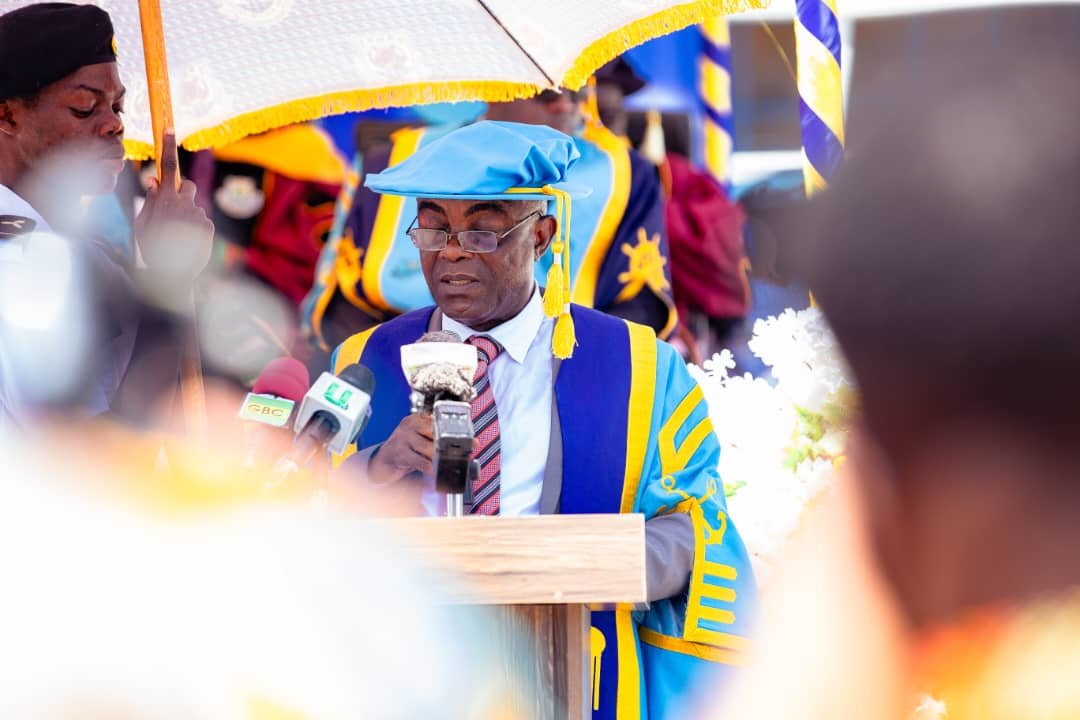News
372 graduate at RMU’s 19th congregation

The Regional Maritime University (RMU) held its 19th Congregation ceremony in Accra on Saturday, celebrating the graduation of 372 students with Master’s degrees, bachelor’s degrees and diplomas across various disciplines.
Of the total number of graduates, 66 received Master’s degrees, 231 were awarded bachelor’s degrees and 75 received diplomas.
Delivering his address, the Acting Vice Chancellor of RMU, Dr Jethro W. Brooks Jr, announced that beginning with the 2025/26 academic year, the university would introduce a four-year mandatory cadetship programme for all students pursuing seagoing courses and interested students from other programmes.
According to him, the initiative was to instill discipline and professionalism among students through adherence to the structured rules and regulations of cadetship.
He emphasised the critical role of cadetship in maritime education, stating, “cadetship programmes are not just beneficial but essential. They ensure that seagoing students become competent, confident, and compliant maritime professionals, capable of upholding the highest standards of safety and efficiency in the global shipping industry.”
Dr Brooks also revealed that RMU would continue its collaboration with shipping companies to secure employment opportunities for its graduates.
Currently, he said, six shipping lines that recruit RMU students have expressed interest in expanding the number of graduates they hire.
He encouraged the graduating class to be responsible citizens, uphold strong moral values and embody a spirit of service, innovation and integrity.
Mr Fugah Hope Kwame was named the Overall Best Postgraduate Student. Among university staff, Mr Prosper Mawusi and Mr Isaac Kofi Entsie were recognised as Employees of the Year (Senior Staff – Non-Teaching), while the Vice Chancellor’s Award was presented to Mr Ebenezer Abban in recognition of his exemplary service.
By Linda Abrefi Wadie
News
Man sentenced to 25 years for robbery at Manso Akwasiso

A 30-year-old man has been sentenced to 25 years imprisonment with hard labour by the Bekwai Circuit Court for his role in a 2022 robbery at a mining site at Manso Akwasiso in the Ashanti South Region.
The convict, Dominic Ofori, also known as Fanta, was arrested on 16th February 2026 after years on the run. He pleaded guilty before the Bekwai Circuit Court to robbery contrary to Section 149 of the Criminal Offences Act, 1960 Act 29, and was accordingly sentenced to 25 years imprisonment with hard labour.
On March 20, 2022, the Manso Adubia District Police received intelligence that a group of armed men from Manso Abodom were planning to attack a mining site at Manso Akwasiso to rob the owner of gold concentrate. Acting on the information, police mounted a coordinated operation and laid an ambush at the site.
At about 5:30 pm the same day, four-armed men arrived at the site, fired indiscriminately, and robbed the miners of their gold concentrate. The police team on surveillance intervened, resulting in an exchange of gunfire.
Three of the suspects, Abu Abubakar, Musah Latif, and Gideon Takyi, sustained gunshot wounds and were pronounced dead on arrival at St Martins Catholic Hospital at Agroyesum. Dominic Ofori escaped at the time but was later arrested and put before the court.
The Ashanti South Regional Police Command has assured the public of its continued commitment to combating violent crimes and bringing offenders to justice.
News
Ashanti police arrest man for publishing false news on TikTok

The Ashanti Regional Police Command has arrested 45-year-old Isaac Boafo, also known as “Duabo King,” for allegedly publishing false news intended to cause fear and panic.
Police said the arrest follows a viral TikTok video in which Boafo claimed that four officers at the Central Police Station in Kumasi engaged in inappropriate conduct with commercial sex workers during night patrols in Asafo.
Officers from the Police Intelligence Directorate (Ashanti Region) apprehended Boafo after receiving intelligence about the video.
During questioning, he admitted to creating the video to attract views and engagement online, and acknowledged that he could not prove the allegations.
Boafo also admitted making comments about the President of the Republic for content purposes and could not defend those statements.
He has been formally charged and is in detention as investigations continue.
The Ashanti Regional Police have warned the public against publishing or sharing false information on social media, noting that such acts can cause fear, panic, and damage reputations.
They said anyone found engaging in similar conduct will face legal action.
By: Jacob Aggrey






